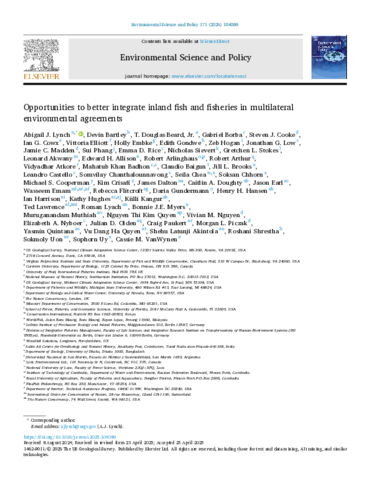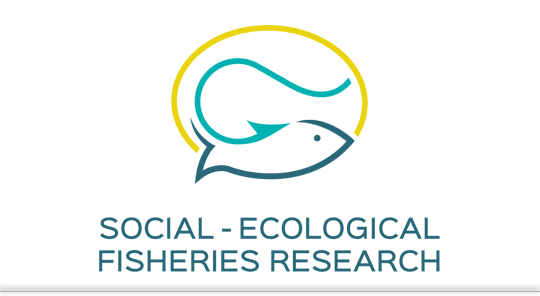Inland fish and fisheries are globally important to environmental function and human services, yet their persistent lack of recognition in global agreements, especially multilateral environmental agreements (MEAs), may hinder progress towards biodiversity conservation and human well-being. The connection between inland fish, fisheries, and their ecosystems means that addressing the needs of fish directly offers opportunities to meet multiple global commitments and provide indicators of progress towards many global goals. In this perspective, we highlight opportunities to better integrate inland fish and fisheries into MEAs, specifically the Convention on Biological Diversity (CBD), Convention on Wetlands (commonly known as the Ramsar Convention), Convention on Conservation of Migratory Species (CMS), Convention on International Trade in Endangered Species of Wild Fauna and Flora (CITES), and World Heritage Convention (WHC). Greater attention on inland fish and fisheries through MEAs could help ensure more holistic planning, investment, and conservation of these important fish and fisheries, their biodiversity, the essential resources they provision, and the environments they inhabit.
Opportunities to better integrate inland fish and fisheries in multilateral environmental agreements
Peer-reviewed

Lynch, A. J., Bartley, D., Beard, T. D., Jr., Borba, G., Cooke, S. J., et al. (2025). Opportunities to better integrate inland fish and fisheries in multilateral environmental agreements. Environmental Science & Policy, 171, 104089. https://doi.org/10.1016/j.envsci.2025.104089
Published
: 2025
Appeared in
: Environmental Science & Policy
